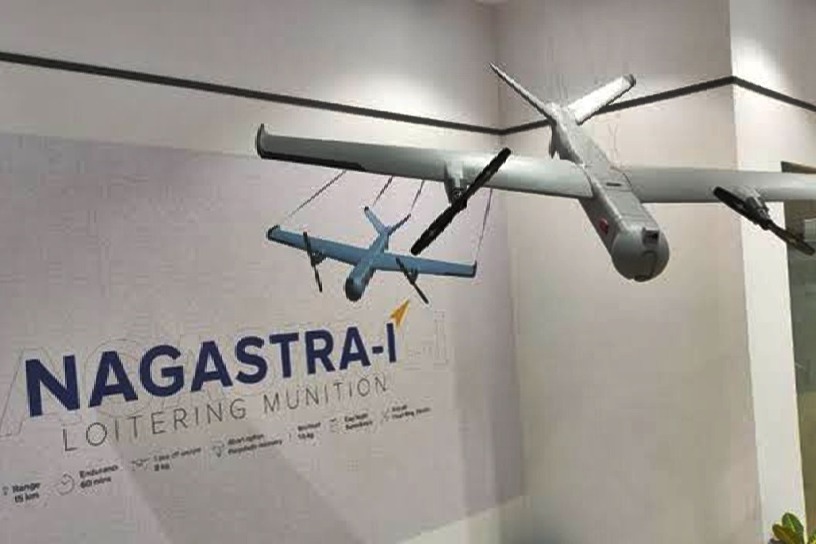Indian Army prepares for future drone wars with deadly ‘Nagastra-1’

New Delhi, June 15: When tech billionaire Elon Musk says that future wars will be won by nations with the most effective drones, he is not bluffing at all.
The Indian Army has received the first batch of 'suicide drones' called ‘Nagastra-1’ which can strike enemy training camps and launch pads in border areas with precision and save soldiers’ lives.
According to reports, these high-tech drones are made in India by Economic Explosives Limited (EEL), a subsidiary of Solar Industries in Nagpur.
The Army placed an order of 480 such drones and at least 120 of them have reportedly been delivered.
What are these 'suicide drones'?
‘Nagastra-1’ is a type of “loitering munition”, where the aerial weapon is designed with an in-built warhead, designed to loiter around an area until a target is located and then crash into it.
These indigenously developed drones offer more selective targeting as the attack can be changed mid-flight or even aborted.
In a ‘kamikaze mode’, the drone can neutralise any threat with a GPS-enabled precision strike with an accuracy of 2 metres.
Weighing around 9 kg, the fixed-wing electric unmanned Ariel vehicle (UAV) has an endurance of 30 minutes, a man-in-loop range of 15 km and an autonomous mode range of 30 km.
It can apparently carry a 1 kg warhead up to a range of 15 km and an upgraded version can carry a 2.2 kg warhead up to 30 km distance.
In case a target is not detected or if the mission is aborted, the suicide drones can be called back and make a soft landing with a parachute recovery mechanism, enabling them to be reused multiple times.
Drone-based wars are now frequent worldwide.
Earlier this month, Ukraine attacked Russian targets with a total of 25 combat drones, with one drone said to have reached deep into the Russian Caucasus.
Yemen's Houthi group also claimed fresh attacks on the US aircraft carrier Eisenhower, another US warship and four commercial cargo vessels in the Red Sea and Arabian Sea via drones earlier this month.
Since November last year, the Houthi group has launched anti-ship ballistic missiles and drones targeting what they said were Israeli-linked ships transiting the Red Sea to show solidarity with Palestinians in the Gaza Strip.
Meanwhile, Prime Minister Narendra Modi and US President Joe Biden last year announced a slew of defence and technology deals, including armed SeaGuardian drones.
The two leaders welcomed India's plans to buy General Atomics's armed MQ-9B SeaGuardian UAVs, which will be assembled in India.
The drones will enhance the ISR (intelligence, surveillance and reconnaissance) capabilities of India's Armed Forces across domains.